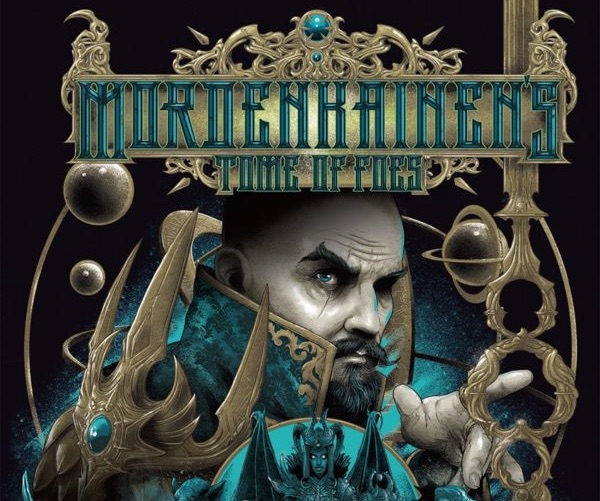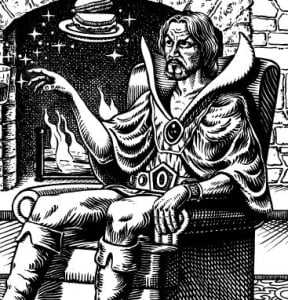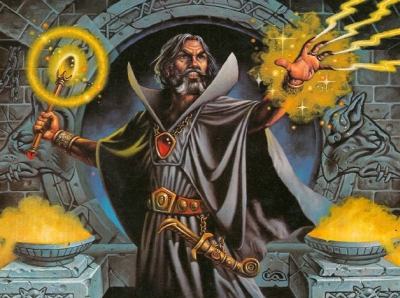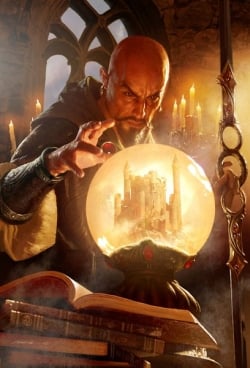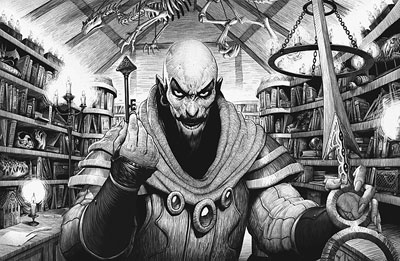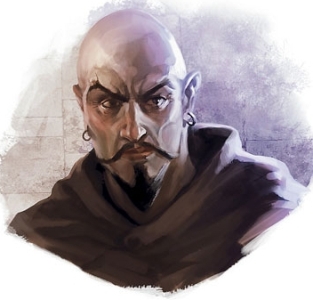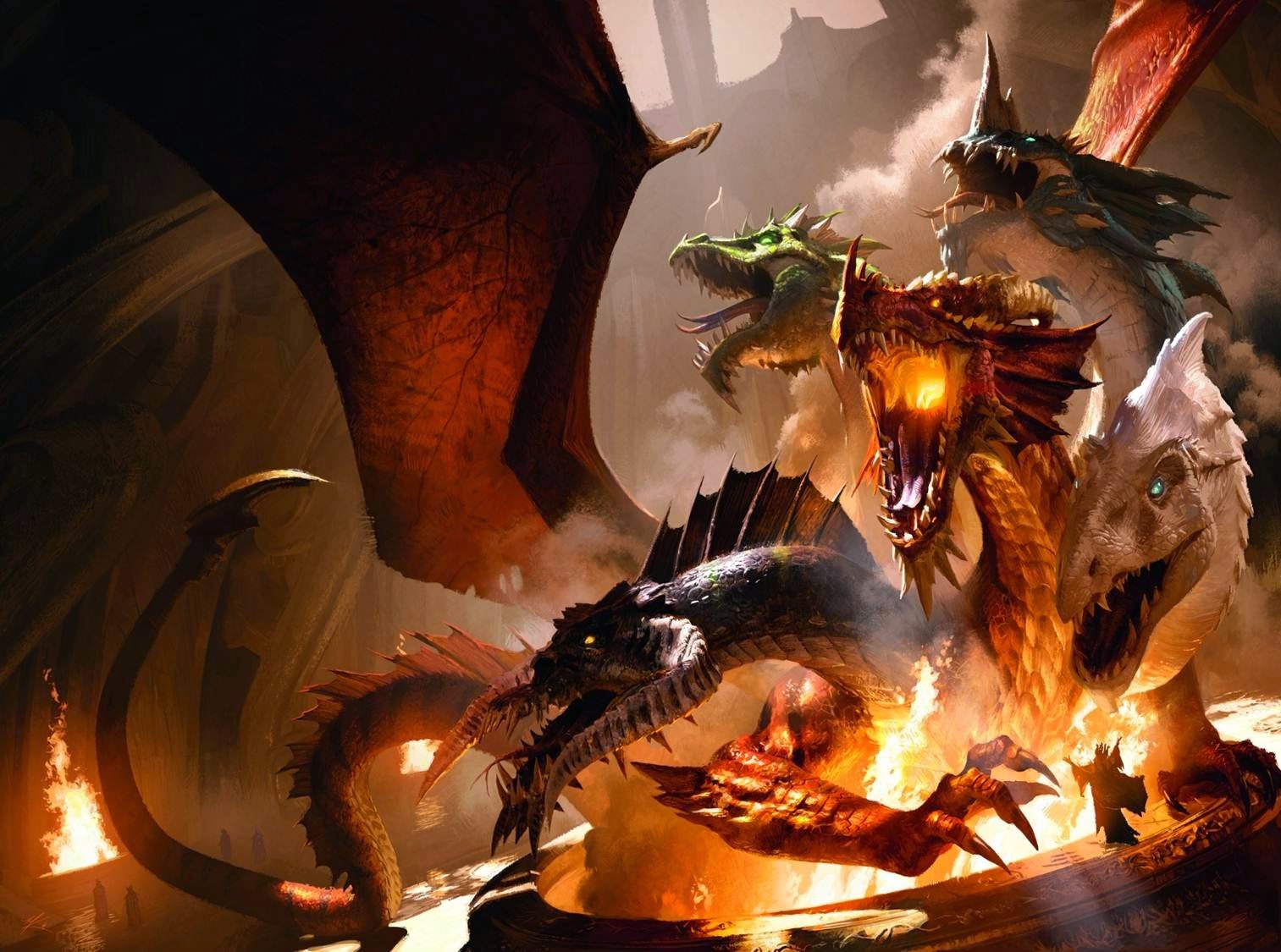Mordenkainen’s Magnificent Monster Spotlight
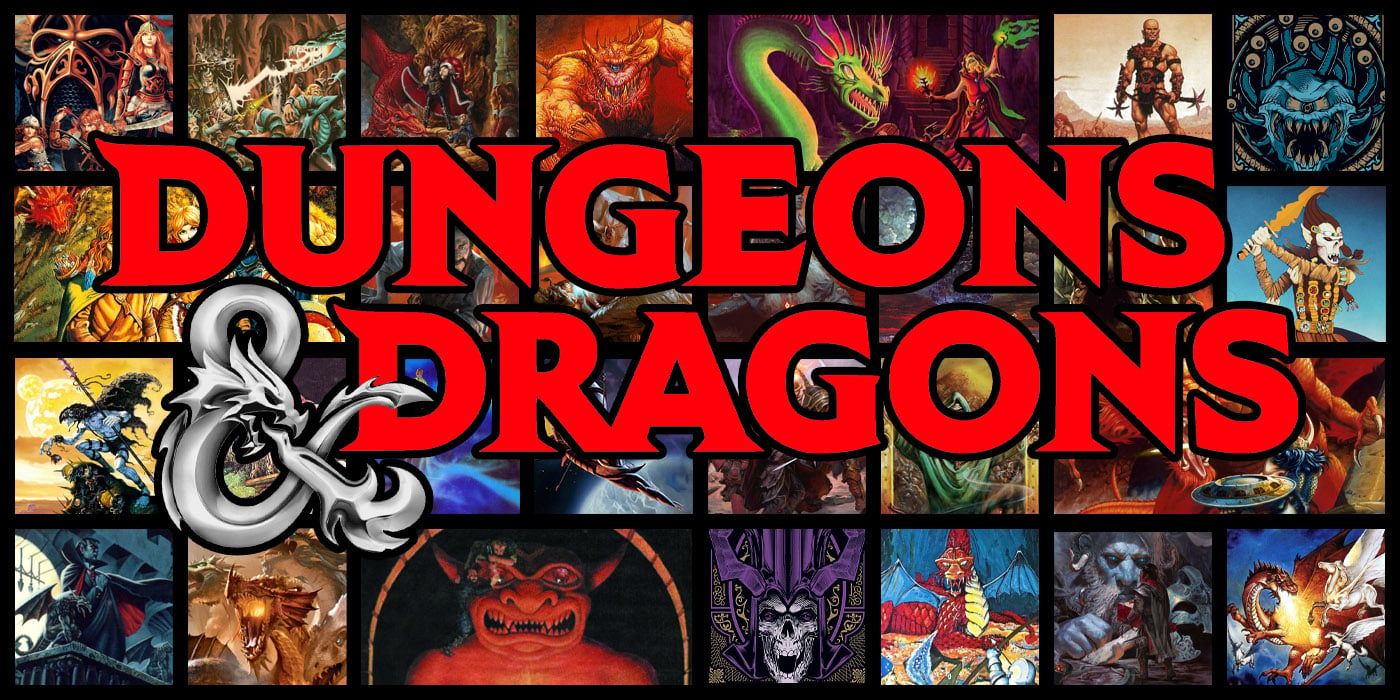

With a Tome of Foes on the Horizon, we visit the Man, the Myth, the Mordenkainen.
That’s right, with the big news hitting that Mordenkainen (of Magnificent Mansion, Sword, Faithful Hound, and Lucubration fame) is going to be helming his own book that takes us on a tour of the planes–and the conflicts within–we thought it was high time to sit down with the mellifluous master of magic, mysticism, and mnemonics: Mordenkainen. We found this Wizard in his Coastal villa and offered him a chance in the spotlight.
Mordenkainen is one of the most legendary magic users in D&D History–he’s been around since before Dungeons and Dragons was Dungeons and Dragons. And like many of the early D&D creations, he has his roots in mythology. Mordenkainen is a combination of both Mordecai and Lemminkainen–two mythic heroes.
Mordenkainen’s own story has a kind of mythological quality to it. It’s interesting, in the world of Greyhawk, Mordenkainen has always been a powerful wizard, the Leader of the Circle of the Eight, and an imposing figure in the tapestry of D&D Lore. But his actual beginnings are in 1973, as a part of the Castle Greyhawk campaign co-DM’d by Gary Gygax and Rob Kuntz. Mordenkainen was one of Gygax’ characters–and has gone on to become his most famous one. Over the years of play in the Greyhawk world, Mordenkainen, along with seven other adventurers became powerful enough that they were building their own stronghold in the middle of evil-controlled lands, they formed into a band called the Circle of Eight.
Originally this was for proximity to evil and adventure so that they would never have to go far for excitement, but then as the years went on, the Circle of Eight changed, later becoming a band of Eight Wizards brought together by Mordenkainen for the express purpose of keeping peace throughout the planes. This is where all of the spells with someone’s name come from. Mordenkainen, Rary, Bigby, Otiluke, Drawmij, Tenser, Nystyl, and Otto were all a part of the Circle of Eight. These were to be referees between Good and Evil–this is the sort of thing that continues to define Mordenkainen to this day.
He’s always been a neutral peacekeeper–a force for balance in the planes, believeing that if one side should win out over the other, it would ruin the cosmos forever. If good or evil should ever win, life would become untenable for people caught in the middle. So, Mordenkainen changed over the years, becoming more of a planar wanderer with appearances throughout the realms. Greyhawk might have been his home world, but he has also appeared in The Epic Level Handbook, and run a magnificent emporium back in 4th Edition.
Here’s his “official” bio, but as with all legendary figures, where the truth ends and the myth begins is anyone’s guess.
Mordenkainen was born 509 CY. His birthplace is unknown, but before coming to prominence in the early 560s, he is thought to have resided on the Wild Coast. He also resided for a time in the City of Greyhawk, as well as Highfolk. He is rumored to be of Oeridian blood, possibly Aerdi. Some claim that he is a descendant of Ganz Yragerne, first Landgraf of the Selintan, which would mean he’s also related to Zagig and Heward. According to some sources, he is distantly related to House Cranden, one of the royal houses of the Great Kingdom of Aerdy.
About 561 CY, with his young apprentice Bigby, the warriors Robilar and Yrag, the clericsRiggby and Serten, the ranger Otis, and fellow mageTenser, Mordenkainen formed the Citadel of Eight. The group was named for the Obsidian Citadel, Mordenkainen’s stronghold in the Yatil Mountains. The Citadel disbanded after the Battle of Emridy Meadows in 569 CY, where Citadel member Serten lost his life.
Two years later, Mordenkainen formed the Circle of Eight, a cabal of eight wizards with himself acting as the ninth “shadow member” and leader. Mordenkainen felt that the failure of the Citadel was due to its composition. He felt that such a group as he envisioned could only succeed if its members were “men of intellect and sorcerous skill, whose primary interests were more than material.
Advertisement
At least, that’s the “official” story, but this seems much too plausible to be actually true.
Happy adventuring!

